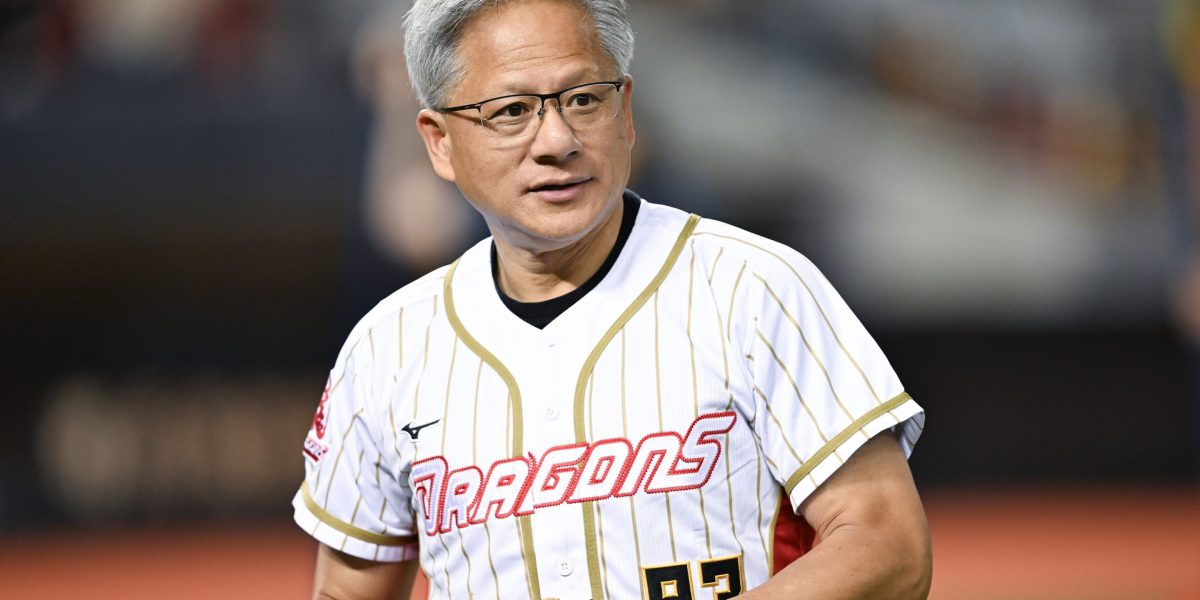Investors need to mark Wednesday in bright red ink on their calendar for next week. It’s a day whose events could ultimately prove to be far more important than Federal Reserve Chair Jay Powell’s speech at Jackson Hole.
Wedbush Securities’ Dan Ives, one of the most influential tech bulls on Wall Street, just began the figurative drumroll in anticipation of Nvidia’s quarterly results expected for Aug. 28. Only don’t confuse these with your run-of-the mill update to investors: According to Ives, they are nothing less than “the most important tech earnings in years.”
In his view, the tech bull market lives and dies on whether underlying demand in new data-center capacity—needed to operate OpenAI’s ChatGPT, for example—remains robust as ever. A miss and markets could easily see a repeat of the turbulence around Aug. 5, a day likened to 1987’s Black Monday, even if Powell signaled today that rates will start to fall.
And that all comes down to Nvidia CEO Jensen Huang. His state-of-the-art graphics processors, once used to power video games, now fuel the AI gold rush, thanks to their ability to perform computations in parallel, rather than in sequence like most central processors. Once networked together in massive compute clusters, they become powerful neural networks without which generative AI is not possible.
“There is one company in the world that is the foundation for the AI Revolution,” Ives wrote on Thursday. “And that is Nvidia, with the Godfather of AI Jensen having the best perch and vantage point to discuss overall enterprise AI demand and the appetite for Nvidia’s AI chips looking forward.”
Rumored delays for next-gen AI training chip Blackwell
With investors like hedge fund Elliott Management warning Nvidia’s valuations are in bubble territory, the market will parse the report for even the slightest sign that demand for its benchmark H100 processors might be softening. Huang’s company is estimated to control 90% of the AI training chip segment.
Equally as important will be any comments Huang makes on the transition from the current Hopper chips to the next-generation Blackwell architecture, led by the upcoming B200 chip. A report from The Information earlier this month suggested that there might be delays, a risk that could ripple through the entire AI food chain.
Charles Liang, CEO of data-center hardware provider Super Micro Computer, has already tempered his fiscal year revenue expectations as a result.
This speculation came hard on the news that major customers such as Elon Musk are investing in contingency plans in case they have difficulty getting their hands on Nvidia chips.
Musk said last month that Tesla, in hot pursuit of a breakthrough in autonomous driving, is doubling down on its own custom AI silicon. These chips are designed specifically with vision (rather than text) machine learning in mind, but Musk has been careful not to overstate progress.
Ives predicts ‘another masterpiece’ from Nvidia’s Huang
Should Huang confirm that customers are continuing to line up for every last chip he can sell, bulls like Ives will likely feel confirmed in their thesis that the AI party is only just beginning—or, as he puts it, the market is reliving the 1995 dotcom boom, not the 1999 dotcom crash.
By his estimate, then, market valuations are still very much in the phase where a youthful, shaggy-haired Marc Andreessen first took Netscape public. We haven’t gotten to the AI equivalent of Pets.com quite yet.
“The stage is set for tech stocks to move higher,” Ives added, predicting “another masterpiece quarter” from Nvidia.
Come Wednesday, investors should have a better idea whether Wedbush or Elliott made the right call.
